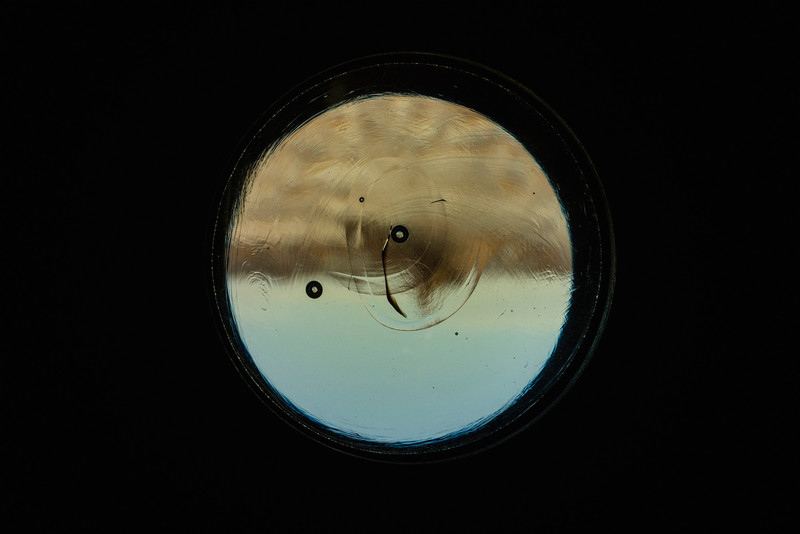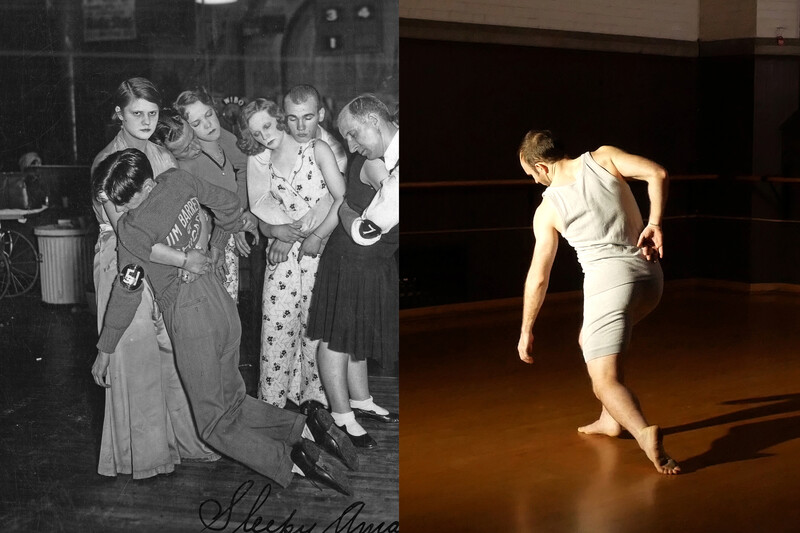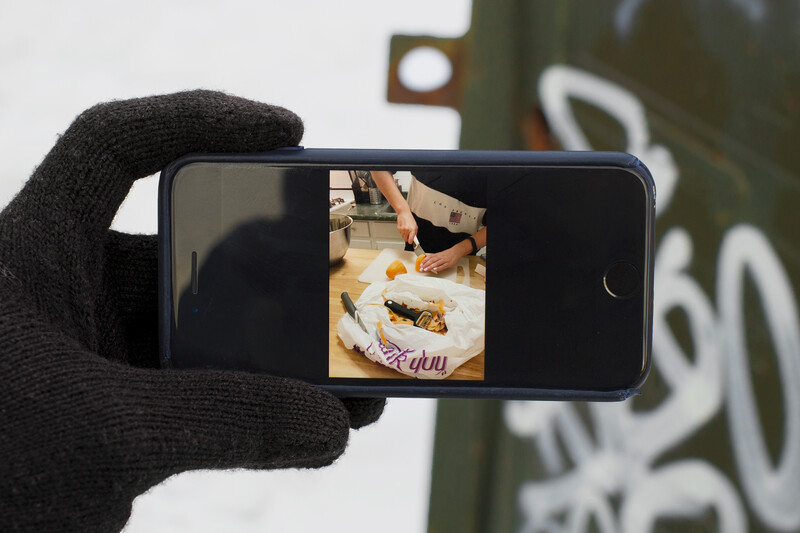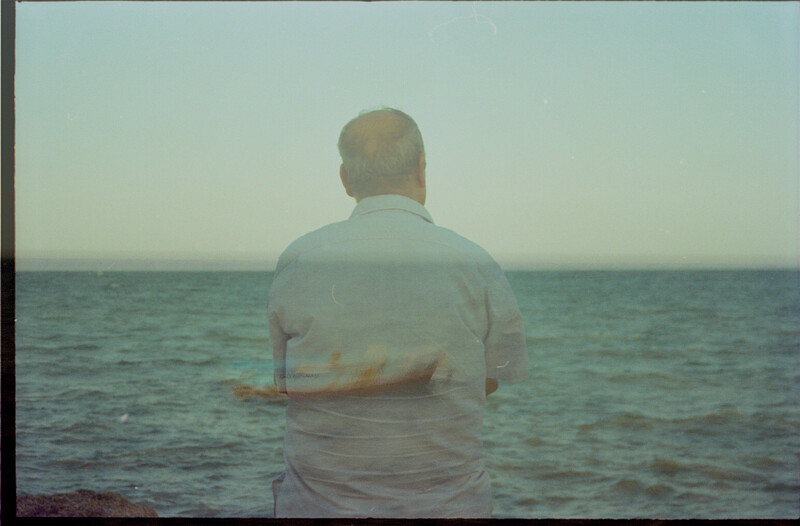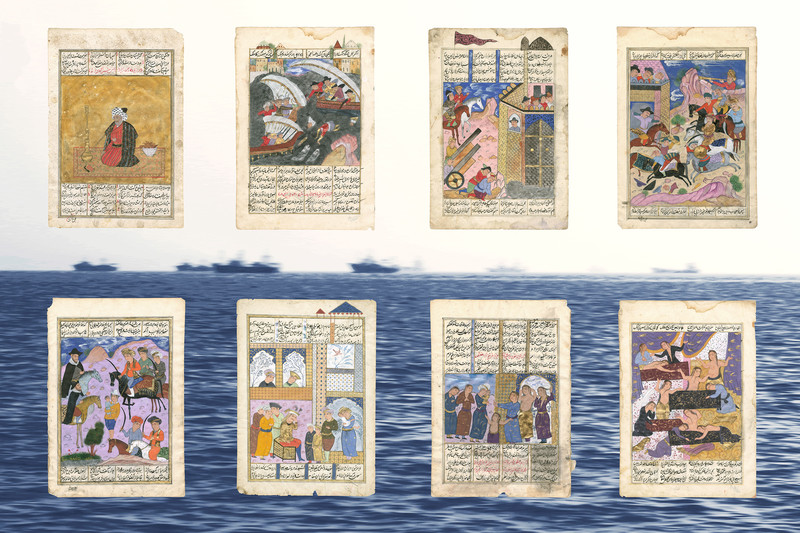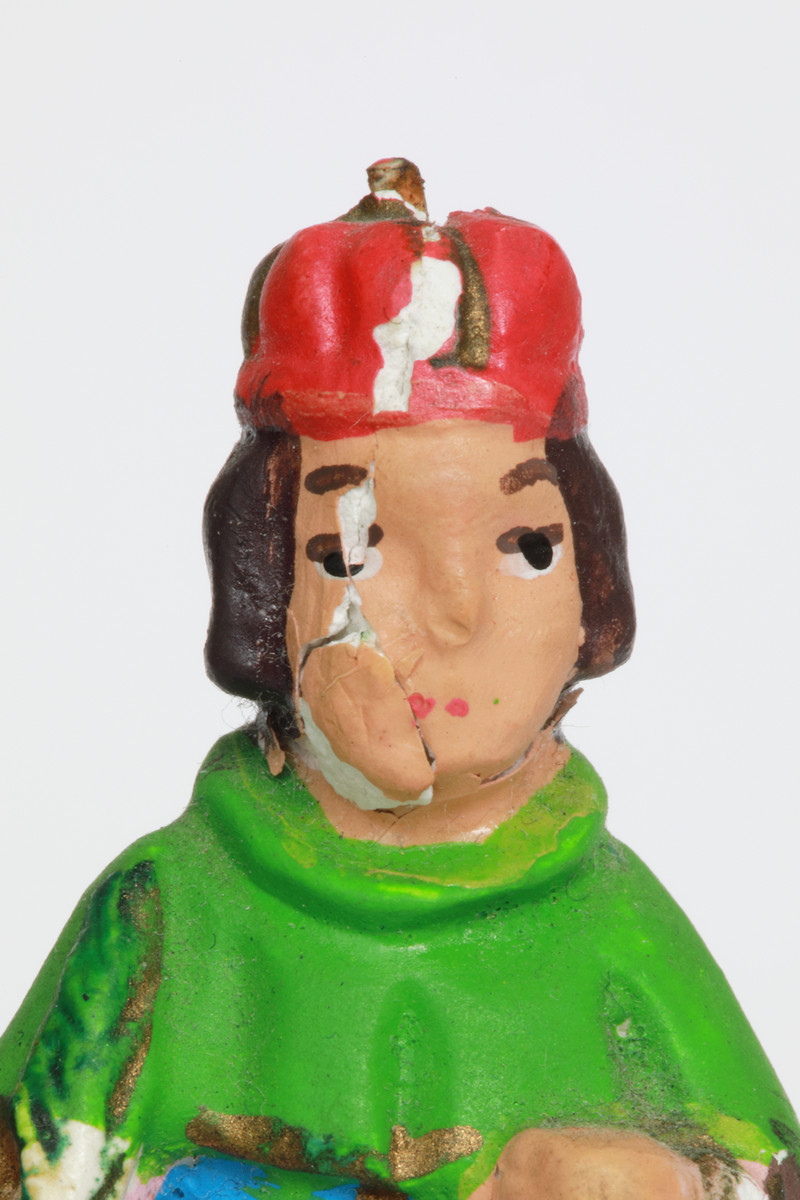Jumana Emil Abboud is an artist living and working in Jerusalem and London. Abboud uses drawing, video, performance, objects and text to navigate themes of memory, loss and resilience. She is interested in oral histories; the investigation of personal and collective mythologies and their re-telling. Abboud has exhibited in numerous venues over the last two decades including Qalandiya International, the Venice, Istanbul, and Sharjah Biennials; Hayward Project Space (London); The Khalil Sakakini Cultural Center and The A.M.Qattan Foundation (Ramallah); Fattoush Gallery (Haifa); Darat Al Funun—The Khalid Shoman Foundation (Amman); Ashkal Alwan (Beirut); Kunstraum Gallery (London); BALTIC Centre for Contemporary Art (Gateshead); Bildmuseum (Umeå); Tate Modern (London); Seoul Museum of Art; and The Palestinian Museum (Birzeit). She has participated in artist residencies with Villa Vassillief (Paris); Delfina Foundation (London); Cove Park (Glasgow); AiT (Tokyo); and in Aarau Switzerland. She published a book with Black Dog Press entitled In aching agony & longing I wait for you by the Spring of Thieves, edited by Lara Khaldi (2018). She has been awarded the Pernod Ricard Fellowship, Bétonsalon (2020), and the Arab Fund for Art & Culture grant (2017). She is currently a PhD candidate at Slade School of Fine Art, University College London.
Rouzbeh Akhbari (b. 1992, Tehran) is an artist working in video installation and film. His practice is research-driven and usually exists at the intersections of storytelling, critical architecture, and human geography. Through a delicate examination of the violences and intimacies that occur at the boundaries of lived experience and constructed histories, Akhbari uncovers the minutiae of power that regiment the world around us. He holds a BFA in Sculpture and Installation from OCAD University and a Master’s degree in Visual Studies from University of Toronto’s School of Architecture, Landscape and Design.
American Artist (b. 1989 Altadena, CA, lives and works in Brooklyn, NY) is an artist whose work considers black labor and visibility within networked life. Their practice makes use of video, installation, new media, and writing. Artist is a resident at Red Bull Arts Detroit and a 2018–2019 recipient of the Queens Museum Jerome Foundation Fellowship. They are a former resident of EYEBEAM and completed the Whitney Independent Study program as an artist in 2017. They have exhibited at the Museum of African Diaspora, San Francisco; the Studio Museum in Harlem; Museum of Contemporary Art Chicago, and Koenig & Clinton, New York. Their work has been featured in The New York Times, Artforum, and Huffington Post. They have published writing in The New Inquiry and Art21. Artist is part-time faculty at The New School (Parsons) and teaches at the School for Poetic Computation.
Yto Barrada is recognized for her multidisciplinary investigations of cultural phenomena and historical narratives, with a focus on Morocco. Her practice encompasses photography, film, sculpture, painting, printmaking, and publishing. Engaging with the performativity of archival practices and public interventions, and often comprised of both original work and found objects, Barrada’s installations reinterpret social relationships, uncover subaltern histories, and reveal the prevalence of fiction in institutionalized narratives. Her work has been the subject of over twenty monographic exhibitions, and has featured in over 150 group exhibitions and biennials throughout Europe, North Africa, Asia, the Middle East, and North America. Interested in developing a platform for cross-cultural dialogue and exchange, Barrada co-founded the Cinématheque de Tanger in 2006, She is a recipient of numerous awards and honours, most recently including the 2019 Roy R. Neubeger Prize, Neuberger Museum of Art, and she was shortlisted for the Fondation Prince Pierre de Monaco’s 47th edition of its Prix International d’Art Contemporain.
Scott Benesiinaabandan is Anishinaabe, a member of Obishkkokaang/Lac Seul First Nations. Scott is an intermedia artist that currently works in experimental image making and sonic materials. Scott currently resides in Winnipeg, Manitoba. He has an MFA in photography from Concordia University. Scott’s current research interests are intersections of the philosophies of artificial-intelligence and Anishinaabemowin. Scott has completed international residencies at Parramatta Artist Studios in Australia, Context Gallery in Derry, North of Ireland, and University Lethbridge/Royal Institute of Technology iAIR residency, along with international collaborative projects in both the U.K. and Ireland. Scott has completed residencies with Initiative for Indigenous Futures and AbTec in Montreal. He is currently a co-investigator with the international project Abundant Intelligences out of Concordia.
Benesiinaabandan has been awarded grants from the Canada Council for the Arts, Manitoba Arts Council, Winnipeg Arts Council and Conseil des arts des letter du Quebec. His work can be found in a number of private, provincial, and national collections.
Formed in 2014, Black Quantum Futurism is an interdisciplinary creative practice between Camae Ayewa and Rasheedah Phillips, based in Philadelphia. BQF weave quantum physics, Afrofuturism, and Afrodiasporic concepts of time, ritual, text, and sound to present innovative works and tools offering practical ways to escape negative temporal loops, oppression vortexes, and the digital matrix. In 2016, BQF founded Community Futures Lab, a community arts space in North Philadelphia. BQF is a 2018 Velocity Fund Grantee, 2018 Akademie Schloss Solitude & ZKM Web Resident, 2017 Center for Emerging Visual Artists Fellow, 2017 Pew Fellow, 2016 A Blade of Grass Fellow, and a 2015 artist-in-residence at Neighborhood Time Exchange, West Philadelphia. BQF has presented, exhibited and performed at Red Bull Arts, New York; Serpentine Galleries, London; Philadelphia Art Museum; Open Engagement; MOMA PS1, New York; Bergen Kunsthall; Le Gaite Lyrique, Paris; and Squeaky Wheel, Buffalo, among others.
Sasha Davai (Alexandra Lapina) was born in 1996 in Yekaterinburg, Russia. After attending Central Saint Martins School of Art, she moved to Jerusalem to study permaculture and communal living. Davai lives and works between London and Jerusalem. Her work navigates urban and natural environments addressing ideas of the nature-culture divide. Using photography as a primary medium, she juxtaposes pictorial beauty with elements of erosion, dereliction, and images of abandoned structures, creating anthropological portraits of places. Some of the projects relate to hybrid documentary photography and test the authenticity of narratives of the subjects portrayed (including projects such as The Graduation, A Brother That I Never Had, and In Search for Domesticity). Interested in the subject-object relationship between humans and nature, many of her works evaluate when and how nature is seen as a product that can be commodified, or a primitive dangerous force that has to be confronted and controlled.
Forensic Oceanography is a project initiated within the Forensic Architecture agency by Charles Heller and Lorenzo Pezzani, in the wake of the Arab uprisings of 2011. It seeks to critically investigate the militarized border regime imposed by European states across the EU’s maritime frontier, analyzing the political, spatial, and aesthetic conditions that have turned the waters of the Mediterranean Sea into a deadly liquid for the illegalized migrants seeking to cross it. The more than 30,000 migrants who have died at and through the sea over the last 30 years are the victims of what Forensic Oceanography call “liquid violence.” By combining human testimonies with traces left across the digital sensorium of the sea constituted by radars, satellite imagery, and vessel tracking systems, Forensic Oceanography has mobilized surveillance means “against the grain” to contest both the violence of borders and the regime of (in)visibility on which they are founded. The project has generated human rights reports and academic articles, as well as videos that have been exhibited internationally.
Martina Pozzan (b. 1989, Schio, Italy) is a photographer with a background in interior design and scenography. Following her studies at the Politecnico di Milano, Università Iuav di Venezia, and Istanbul Bilgi University, she earned her Master's in Photography degree from the Università Iuav di Venezia. Her practice explores the interaction between the natural and artificial and investigates the borders between visible and invisible representations of reality. Her work attends to the social and political dimensions of the subjects she depicts, and she adopts both documentary and performative frameworks in her photography practice.
Her ongoing project, Musa × paradisiaca L., investigates the conservation of biodiversity through biological collections. A preview of the work was shown at Unseen Amsterdam 2018’s Book Market. Pozzan is a member of the ZONE -poème- theatre company, an international research, creation, and performing arts collective currently at work on the performance BARBARE (zone -XIV-) for the European Museum of Translation. Pozzan is based in Berlin, where she is currently collaborating with Armin Linke.
Yassine Rachidi is a multidisciplinary artist working and living between Montreal and the MENA region. Using archival materials and analog methods of documentation, Rachidi’s practice approaches strangers as vectors of magical realism. Through fiction-writing, photography and sonic films, Rachidi formulates immersive modes of expression that move from these individual encounters to broader social, poetic, and historical discourses.
Oscar Santillán is an artist and cybernetician living in The Netherlands and Ecuador. His early career was deeply shaped by working within collective environments, and he continues to collaborate with scientists and other curious minds. He holds an MFA in Sculpture from Virginia Commonwealth University and has been artist-in-residence at Skowhegan (US), Jan van Eyck (NL), Ratti Foundation (IT), Delfina Foundation (UK), and Leiden Astronomical Observatory (NL). His work has been exhibited in the Yokohama Triennial 2020, and at MUAC Museum, Mexico; Witte de With Center for Contemporary Art, Rotterdam; Copperfield, London; Fundación ODEON, Bogotá; Spazio Calderara, Milan; Château La Borie, Solignac; among others. He is one of the igniters setting órbitat—a platform for the encounter of art, science, and technology in Latin America—in motion.
Toronto-based interdisciplinary artist Jon Sasaki's work has been exhibited in numerous solo exhibitions in galleries, including the Ottawa Art Gallery (Ottawa); the Southern Alberta Art Gallery (Lethbridge, AB); and the Art Gallery of Ontario. Recent group exhibitions include Platform Art Spaces (Melbourne); Nihonbashi Institute of Contemporary Art (Tokyo); and the Museum of Contemporary Canadian Art (Toronto). In fall of 2014, he completed an outdoor public installation at Sheridan College (Oakville, ON) as part of their Temporary Contemporary commissioning program. He is the recipient of the 2015 Canadian Glenfiddich Artists in Residence Prize (Dufftown, Scotland) and will participate in the Canadian Residency (Detroit) in the fall of 2015. Sasaki holds a BFA from Mount Allison University (Sackville, NB). He is represented by Jessica Bradley Gallery in Toronto
Erdem Taşdelen is a visual artist based in Toronto. His practice is rooted in conceptualism and involves a range of media including installation, video, sound, and artist books. His diverse projects bring structures of power into question within the context of culturally learned behaviours, where he often draws from unique historical narratives to address the complexities of current socio-political issues. His work has been shown in numerous exhibitions internationally, at venues including Mercer Union, Toronto; AKA Artist-Run, Saskatoon (2020); Contemporary Art Gallery, Vancouver; Museum für Gegenwartskunst Siegen; Untitled Art Society, Calgary (2019); VOX Centre de l’image contemporaine, Montreal (2018); Pera Museum, Istanbul; Museum für Neue Kunst, Freiburg (2016); Stacion CCA, Kosovo (2015); Kunstverein Hannover; ARTER, Istanbul; Haus Konstruktiv, Zurich; and MAK, Vienna (2013). He has been awarded the Joseph S. Stauffer Prize in Visual Arts by the Canada Council for the Arts (2016), the Charles Pachter Prize for Emerging Artists by the Hnatyshyn Foundation (2014), and was long-listed for the Sobey Art Award in 2019.
Shaheer Zazai is a Toronto-based Afghan-Canadian artist with a studio practice both in painting and digital media. His practice focuses on exploring and attempting to investigate the development of cultural identity in the present geopolitical climate and diaspora. Zazai’s digital works make use of Microsoft Word and imagery drawn from traditional Afghan carpets. Through mimicking carpet-making methods, Zazai creates his own designs in Microsoft Word, where every knot of a carpet is translated into a typed character. Zazai received a BFA from OCAD University in 2011 and was the OCAD University Digital Painting Atelier Artist in Residence in 2015 for the production of his first Digital Carpet. He is a recipient of Ontario Arts Council grants, and has participated in group and solo exhibitions at the Walper Hotel in Kitchener (CAFKA), the Art Gallery of Mississauga, Hazelton Lanes Art Festival, Double Happiness Projects, Capacity 3 Gallery, Glenhyrst Art Gallery of Brant, and Patel Brown Gallery. Zazai was also a finalist for EQ Bank’s Emerging Digital Artist Award in 2018. His digital works have been covered by CBC Arts in 2018 and Ajam Media Collective in 2019.
Laurie Kang is an artist living in Toronto. Her work has been exhibited at Interstate Projects and Topless, New York; The Power Plant Contemporary Art Gallery, Cooper Cole, 8-11, The Loon, Gallery TPW, Franz Kaka, and Carl Louie, Toronto; Remai Modern, Saskatoon; Galerie Antoine Ertaskiran and L’inconnue, Montreal; Raster Gallery, Warsaw; Wroclaw Contemporary Museum, Poland; and Camera Austria, Graz. She has been artist-in-residence at Rupert, Vilnius; Tag Team, Bergen; The Banff Centre for Arts & Creativity, Alberta; and Interstate Projects, Brooklyn. She holds an MFA from the Milton Avery School of the Arts at Bard College and is represented by Franz Kaka in Toronto.
Dina Georgis' work is situated in the fields of postcolonial and sexuality studies, drawing on psychoanalytic concepts to conceptualize how expressive and political cultures are responses to affective intensities. Her book, The Better Story: Queer Affects from the Middle East (SUNY, 2013) considers the emotional dynamics of political conflict, the stories and subjectivities they produce, and what it means to make an ethical relationship to conflict. Georgis has published essays on aesthetics, memory and the Lebanese civil war and on queer Arab ontologies. Her work can be found in Psychoanalysis, Culture and Society, Studies in Gender and Sexuality and in the International Journal of Middle East Studies. In collaboration with Dr. Sara Matthews (WLU), she completed a project supported by SSHRC Development Research Creation entitled “Surveillant Subjectivities: Youth Cultures, Art and Affect.”
Xuan Ye 叶轩 (CA/CN) makes mixed media installations and performances as media poetry, synthesizing language, code, sound, body, image, data, light, and time. Their work makes noises in the speculative space of sensorium, coupling with more-than-human agencies (internet, artificial intelligence, electricity and circuits, and non-human organisms) to experiment with meaning-becoming and world-building. X’s work has been featured, exhibited, and performed internationally, including Transmediale (2021), Hearth (CA), Center of the Experimental Film (CN), Fonderie Darling (CA), Varley Art Gallery of Markham (CA), Canadian Art, the AGO (CA), Vivid Projects (UK), Supermarket Art Fair (SE), InterAccess (CA), Inside-out Art Museum (CN), Goethe-Institut (Beijing & Montreal), ArtAsiaPacific, KUNSTFORUM (GE), Squeaky Wheel Film & Media Art Center (US), Trinity Square Video (CA), Times Museum (CN), among others. X’s live performances and music releases have received critical accolades from Bandcamp, Musicworks, and Exclaim!.
Jessica Karuhanga is a first-generation Canadian artist of British-Ugandan heritage whose work addresses issues of cultural politics of identity and Black diasporic concerns through lens-based technologies, writing, drawing and performances. Through her practice she explores individual and collective concerns of Black subjectivity: illness, rage, grief, desire and longing within the context of Black embodiment. She is the 2020–21 recipient of Concordia University's SpokenWeb Artist/Curator In Residence Fellowship. Karuhanga has presented her work at SummerWorks Lab (Toronto, 2020), The Bentway (Toronto, 2019), Nuit Blanche (Toronto, 2018), Onsite Gallery (Toronto, 2018) and Goldsmiths University (London, UK, 2017). Karuhanga's writing has been published by C Magazine, BlackFlash, Susan Hobbs Gallery, and Fonderie Darling. She earned her BFA from Western University and MFA from University of Victoria. She lives and works in Toronto, Canada where she is part-time lecturer at Ryerson University.
Omar Berrada is a writer and curator, and the director of Dar al-Ma’mûn, a library and artists residency in Marrakech. His work focuses on the politics of translation and intergenerational transmission. He is the author of Clonal Hum, a book of poems on “invasive species” (2020), and the editor or co-editor of several books, including Album – Cinémathèque de Tanger, a multilingual volume about film in Tangier and Tangier on film (2012), The Africans, a book on migration and racial politics in Morocco (2016), and Ahmed Bouanani’s posthumous history of Moroccan cinema, La Septième Porte (2020). His writing was published in numerous exhibition catalogs and magazines, including Frieze, Bidoun, and Asymptote, as well as anthologies such as The University of California Book of North African Literature (2013) and Poetic Justice: An Anthology of Contemporary Moroccan Poetry (2020). Currently living in New York, he teaches at The Cooper Union where he co-organizes the IDS Lecture Series.
Bruno Alves de Almeida (87, BR/ PT) is a curator and architect, currently the curator and resident liaison of the Jan van Eyck Academie, Maastricht. His practice explores the co-defining relation between social and spatial dynamics and their influence in the shaping of our urban and natural environments, resulting in context-specific and transdisciplinary projects which foster intersections between art, architecture, urban theory, and the social and natural sciences. Bruno has collaborated with institutions such as: Harvard Graduate School of Design, Cambridge; Storefront for Art and Architecture, New York; De Appel, Amsterdam; Stedelijk Museum, Amsterdam; PACT Zollverein, Essen; São Paulo Architecture Biennial; Pivô Art and Research, São Paulo, among others. He is an alumnus of De Appel’s Curatorial Programme, Amsterdam. He holds a Master’s degree from the Mendrisio Academy of Architecture, Switzerland, and a Bachelor from the Faculty of Architecture of the University of Oporto, Portugal.
